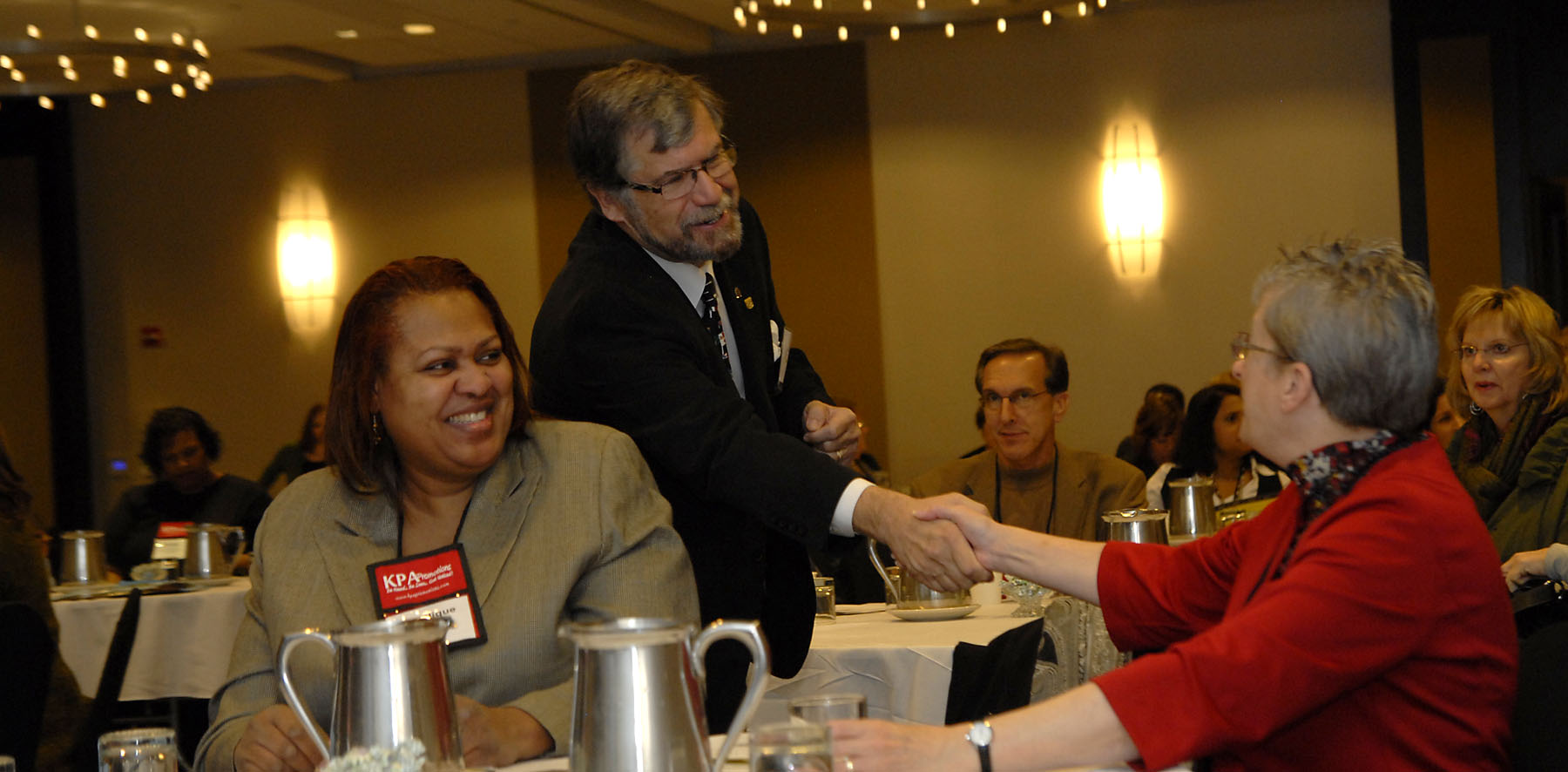The Heart of Hospitality Remains Service
by John J. Hogan, CHA, CHE, CMHS CHO
Co-Founder HospitalityEducators.com and Principal of HoganHospitality.com
Hospitality and tourism arguably make up the world's largest industry. They play a major role in the world economy and contribute significant revenues and net wealth to many countries. When we think about it, we recognize that many components of hospitality are based heavily on the personal, "high touch" side of life.
It was a number of years ago that I first learned anything about hotels and hospitality when a high school friend's family bought a seasonal resort. That family did not remain in the industry, but I learned from another family of hoteliers in that same location about the many disciplines in hospitality.
In our careers, we understand that the need to learn purchasing protocols, how to interpret and anticipate market trends, and keeping current with legal and safety requirements is essential. We recognize that we must evolve with technology, that we must address revenue management, and provide meaningful training to our staff if we expect them to meet the expectations of guests in our facilities.
The hotel industry has evolved significantly in many aspects during the past 20 years. Energy awareness and sustainability are now essential factors in both construction and ongoing operations. Purchasing, design, event planning and sales have changed dramatically. Innovations in culinary offerings have extended to creatively serve groups of all sizes in restaurants, conference centers and banquet events. Entertainment options in clubs, pubs and arenas have grown enormously, as has the need to be more attentive to security in a changing world.
The physical buildings have evolved and range from mega-hotels with casinos in certain markets to bed and breakfasts in communities of all sizes. There are now properties of all sizes and configurations at airports, in mixed use buildings, attached to convention halls, on converted ships, in secondary and tertiary cities and many other conversions and forms.
These hospitality offerings and hotels today are owned and managed by a wide array of groups, ranging from individuals to multinational corporations, Real Estate Investment Trusts and single industry companies of all sizes. Many are franchised; some are managed by individuals, some by third parties and others by family units. Properties can range from a ten-room country inn to a 2,000-room property on the ocean or in a city center attached to a municipal convention center.
While much has changed in hospitality, on reflection we still note that the experience element of hospitality depends not on the size or ownership of a hotel or restaurant, but on the personal, "high touch" delivery individually provided by hospitality staff to guests - one on one.
I recall somewhat "bragging" to the founding partners of the family business mentioned earlier how much I was learning at the large multinational hotel company that had hired me out of hotel school into a management training program in their 1500-room flagship hotel. They smiled and said that I could learn from the major companies how to follow the large company rules and be part of a major corporation, but I probably would not learn how to be a host or a real innkeeper profitably. Those skills and competencies would be developed through time and hands-on experience. I gained what I felt were incredibly important perspectives and experiences in those seasons and something else that I feel I did not learn at university or at big corporate hotels, either. That something was the need to apply innkeeper and host common sense to formulas, percentages, calculations and protocols.
Many brands today have customer service programs and some are quite good in their advertising value and in general guest satisfaction. Those programs may or may not exceed the guest's expectations or hopes and that is why it is so critical for hospitality associates to truly "care" about their guests. It remains up to each individual hotel associate to deliver that exceptional "one-on-one" experience.
The American Hotel & Lodging Educational Institute has a guest service training program that shows employees and properties how to achieve a new standard of exceptional service based on emotionally engaging with guests in memorable ways.
- The Guest Service Gold Program features a video with seven brief stories--based on true stories of award-winning guest service-focusing on the emotional elements used to motivate and inspire hotel employees to 'go for the gold' when it comes to providing service above and beyond guests expectations. This training can be delivered in two hours, and includes: a DVD, pre-shift lesson plans, one trainer's guide, and five participant workbooks. It covers the topics of Authenticity, Intuition, Empathy, Champion, Delight, Delivery, and Initiative.
- Associates of the hotel who complete the Guest Service Gold Training Program or an equivalent training program offered by the property are eligible to become a Certified Guest Service Professional (CGSP) and the hotel can receive a Property Certification when certain requirements have been met.


